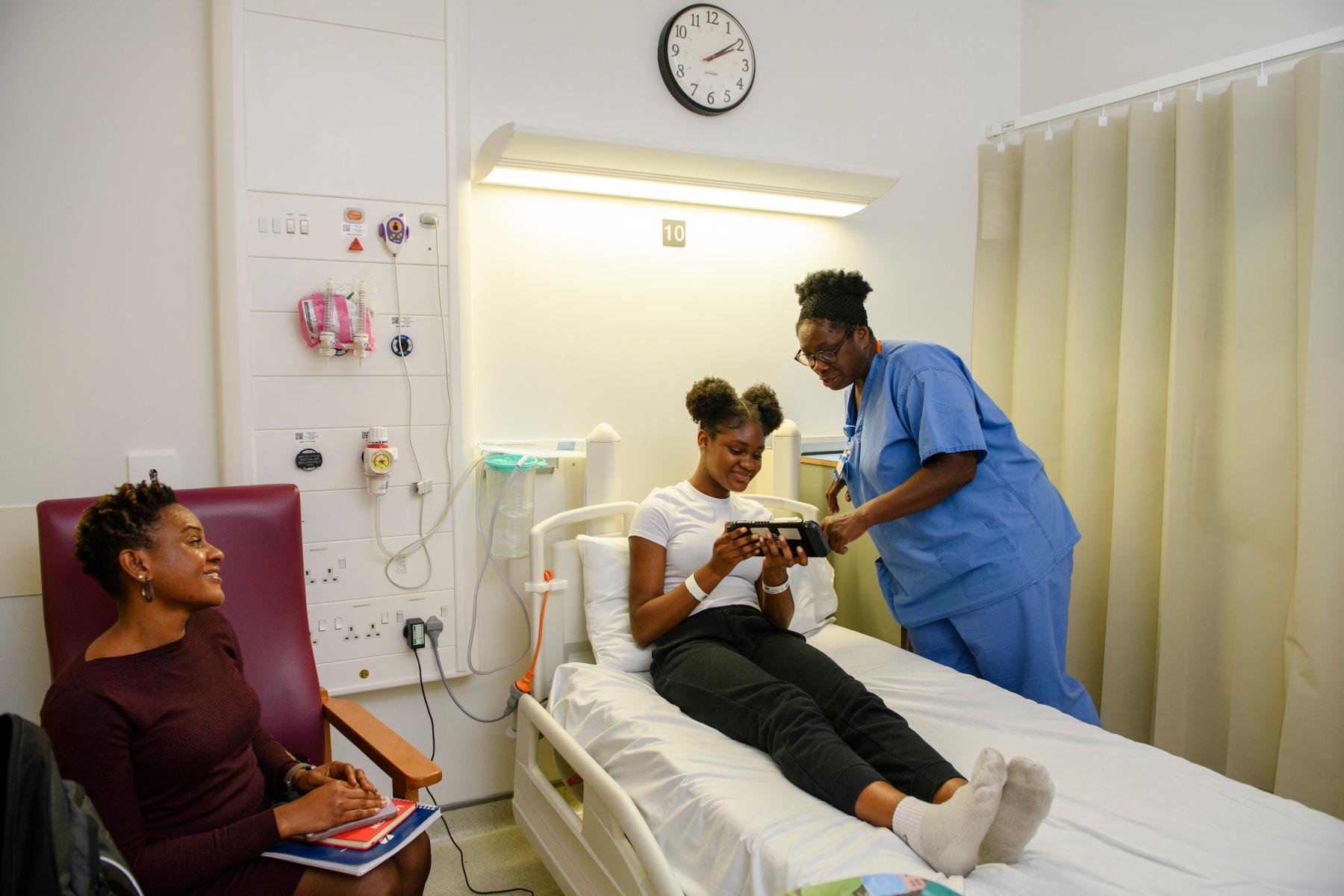Your visit


We suggest you bring:
Find out what to do if you have special requirements.
Your appointment letter or appointment card should tell you where to go when you arrive.
If not, please call the number on your appointment letter or appointment card to find out where you should go. If you misplace your appointment letter or card, please contact central appointments.
Yes, we do. We won’t go ahead with treatment or surgery without your permission. And you have the right to refuse any treatment or examinations. If you are not able to give your consent, staff will act in your best interests.
We understand how important your privacy is and our priority is to ensure that you are cared for in single-sex facilities. The majority of the wards in our hospitals are single sex, or, in some cases, mixed wards with single sex bays.
There may be some cases, particularly in emergencies, where we can’t provide single-sex accommodation. This is most likely to happen if you need to be looked after in an emergency or intensive care ward, or a high dependency or observation unit.
At some point in your treatment, you may be asked to be involved in research which is relevant to your care. Your consent to be part of a research project will be asked for separately to all other aspects of your treatment. You have the right to refuse to be involved in any research – refusal will not affect the rest of your care.
Yes, post is delivered every day and a member of the ward staff will bring your mail to you. To avoid delays, please ask your relatives and friends to use your full name, the name of the ward and the full address of the hospital. Outgoing mail is collected from the ward each day.
Yes, the NHS charges overseas patients, unless they are exempt. Clinic staff or the Paying Patients Office (020 346 55028) can advise you about this. You can find out more information here.
Staff will usually agree a leaving (discharge) date with you at an early stage. Everyone involved will work towards making sure you go home on time.
On your day of discharge, we will aim to have you ready to leave the ward by 10am. If you need to wait for transport, or for your medicine to be prepared, we’ll take you to the discharge lounge. The ward staff will let you know if they think you should be accompanied home by a friend or relative. Please make suitable plans as soon as you know your departure date.
You will be given a letter, called a discharge letter, giving brief details of your stay in hospital, any medicines you have been advised to take and information about your discharge (leaving hospital) arrangements. Your GP will also receive a copy of this.
If you are assessed by our transport assessment officers as being medically unable to make your own way home and you have no other means of getting home, staff can advise you about arranging hospital transport.
We will give you a supply of any medicines you may need and information on how to get repeat prescriptions if you need them.
Below is a list of where you can find our pharmacies.
Newham Hospital
Outpatients at Newham Hospital who are given a prescription after their appointment can choose to have the label on their medicine translated into one of 11 languages.
The Royal London Hospital
St Bartholomew’s Hospital
Whipps Cross University Hospital
The standard prescription fee will be charged unless you are exempt from charges. If you are exempt, please provide proof – for example, an exemption certificate. Hospital pharmacy prescriptions are not valid for dispensing by your local community pharmacist and you should therefore collect your prescription items before you leave the hospital.
If you have any fears or concerns, please speak to a member of staff. If you are unable to leave your bed to speak to a member of staff you can always alert them by pushing your bedside call button or pulling the cord.
Virtual wards are the broad term given to a collection of programmes which allow patients to get the care they need at home safely and conveniently, rather than being in hospital.
At Barts Health, we have virtual ward beds across a number of specialities such as frailty, respiratory and cardiology.
How do virtual wards work?
Patients can be referred via GPs, or Barts Health staff or they can refer themselves. They are then triaged and a decision is made as to whether they can continue their care at home.
If the patient and their family are happy, they are admitted onto the virtual ward and are informed on how they will receive care, for example, if it will be via phone/online and home visits and what patient/relative will need to do to manage their care at home. Patients can be admitted for up to 14 days.
Progress is monitored by a clinical team which includes daily ward rounds with respiratory consultants. The decision to discharge is based on the patient’s recovery along with whether any follow-up care is needed.
What are the benefits of virtual wards?
Virtual wards offer a different type of care but they don’t suit every patient nor are they aimed at young patients or those who are able to use technology.
Benefits include:
You can read about one of our patients, Elizabeth, here.